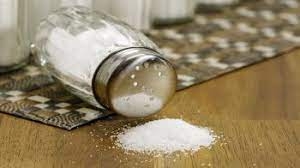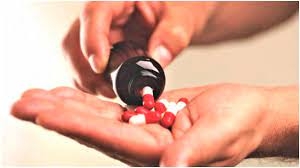Taking fertility drugs without doctor’s prescription raises ovarian tumors, cancer risks
A professor of Obstetrics and Gynaecology at the Ahmadu Bello University, Zaria, Solomon Avidime, says fertility drugs should never be used without a doctor’s prescription and supervision, warning women engaging in the act to desist from it.
He expressed concern that a lot of women experiencing infertility are abusing ovulation induction drugs without knowing the risks involved. Prof. Avidime said such action exposes them to ovarian tumours and cancer risks.
NAFDAC alerts public to contaminated Whippy mayonnaise in circulation
The National Agency for Food and Drug Administration and Control has alerted Nigerians to the sale of an unwholesome Whippy Real Mayonnaise, in Nigeria. NAFDAC said the product was discovered following a consumer’s complaint, which was investigated by the post-marketing surveillance unit of the Agency in Ilorin, Kwara State.
“On investigation, the products were sourced locally from the manufacturer SNF FOODS Limited, Onitsha, Anambra State. Samples were taken randomly from different batches of the product for laboratory analysis in NAFDAC Laboratory.
Federal Government confirms first anthrax case in Niger State
The Federal Government, on Monday, confirmed the first case of anthrax in Nigeria, stating that the disease was detected in a farm in Niger State. This was revealed in a statement issued in Abuja on Monday by the Federal Ministry of Agriculture and Rural Development.
On June 13, 2023, PUNCH Healthwise reported that the Federal Government alerted the general public to the outbreak of anthrax disease in some neighbouring countries within the West African sub-region and advised Nigerians to desist from the consumption of hides, otherwise known as ponmo, at the moment.
High salt intake increases risk of clogged arteries in heart, neck- study
A new study carried out by researchers in Sweden has found that people who consume high volumes of salt are at higher risk of heart attacks and strokes. The study discovered the possibility that salt can cause extensive damage even before the onset of high blood pressure.
The study, published online in the European Heart Journal Open, found that people with high salt intake are at higher risk of calcifications in the heart and neck arteries. According to Healthline, an online medical portal, calcification happens when calcium builds up in body tissue, blood vessels, or organs.
Lack of regulation, greed turn child-seeking couples’ joy into nightmare
With cases of infertility hitting the roof, most couples have chosen the part of illegal form surrogacy to become proud parents. However, in order to protect surrogate mothers that go through the recognised route, commissioning couples and the children involved, experts say surrogacy law must be in place to stem the menace of illegal practices like the proliferation of ‘baby factories’ and illegal child adoption.
Rising cases of infertility have denied most homes the joy of parenting. For most women, motherhood is a dream that eludes them and they can do anything to have the appendage – mother.
Exercising without sufficient sleep may cause cognitive decline
A new study has found that people who exercise regularly and sleep for less than six hours at night on average, stand a high risk of suffering cognitive decline. The study stressed the need for enough sleep and how improving brain function through exercise may not be possible without it.
According to World Health Organisation, around 50 million people have dementia and with one new case every three seconds, the number of people with dementia is set to triple by 2050. WHO described dementia as a term for several diseases that affect memory, thinking, and the ability to perform daily activities.
Why sweating excessively at night should raise serious health concerns -Physicians
Excessive night sweats that interrupt sleep may be a sign of underlying health problems like tuberculosis, diabetes or bone infection, especially when accompanied by fever or unexplained weight loss, physicians have said.
They advised those that experience severe night sweats not to dismiss it as a normal occurrence but to seek medical help from experts that will evaluate and tell them the actual cause.
Foamy urine may be a sign of kidney disease, says gynaecologist
A Consultant Obstetrician and Gynaecologist at the Aminu Kano Teaching Hospital, Kano, Dr. Sule Abdullahi, has advised people to pay attention to the colour and smell of their urine to know when it becomes foamy.
He noted that passing out foamy urine may indicate early kidney disease or protein in the urine (proteinuria), which requires urgent medical evaluation. The physician, who spoke exclusively to PUNCH Healthwise, urged those experiencing consistent foamy urine to see a physician, stressing that the colour of the urine has a lot to tell about an individual’s health.
Abusing drugs to prolong erection causes irreversible impotence – Urologists
Urologists say the rate at which Nigerian men, especially youths abuse drugs to have prolonged or excessive erection during sexual intercourse has assumed an alarming dimension. They warned that excessive erection could lead to irreversible impotence.
The specialists said excessive erection also known as priapism is another form of erectile dysfunction common among the youth but that it is hardly talked about. Urology is the branch of medicine that focuses on surgical and medical diseases of the urinary-tract system and the reproductive organs.
Constant anger may predispose people to hypertension, stroke – Psychiatrists warn
Mental health experts have said getting angry at the slightest provocation heightens the risk of non-communicable diseases such as hypertension and stroke, especially in those who are already living with health conditions that affect their cardiovascular system.
The experts said anger could affect both the physical and mental health of individuals who are in the habit of getting angry always. The psychiatrists noted that anger could affect the immune system and the mind, which might lead to slow recovery from some general illness, including malaria.
















